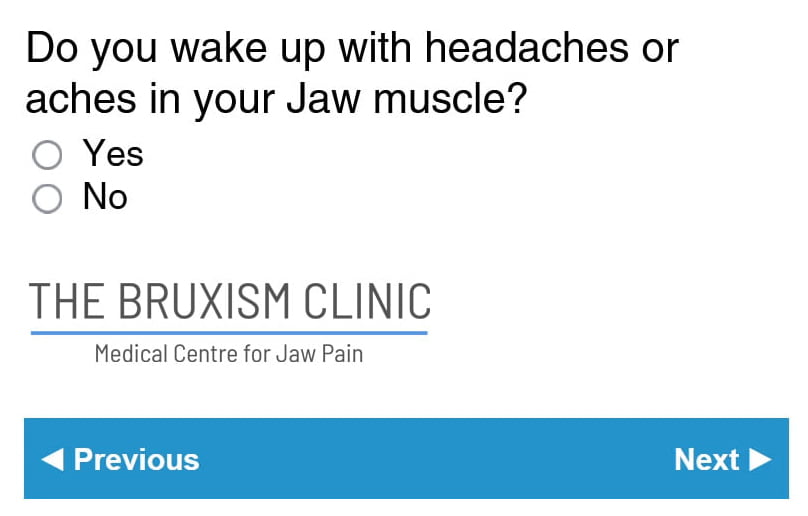Stress is an unavoidable part of life, but did you know it can lead to teeth grinding, or bruxism? Many people grind their teeth when they're feeling anxious or overwhelmed, especially at night when they're asleep. This can cause a lot of discomfort, from jaw pain to headaches, and can impact your daily life.
The pressure of stress doesn't just affect your mind—it has a big impact on your mouth, too. The tension that builds up can make you clench your jaw and grind your teeth without even realising it. Over time, this can wear down your teeth, leading to dental issues that need attention.
Finding ways to manage stress can help lessen the effects of bruxism and protect your smile. Understanding how stress and teeth grinding are connected is an essential first step. By addressing these triggers and learning effective management techniques, you can take control and ease the strain on your teeth and jaw.
Understanding the Connection Between Stress and Bruxism
Bruxism is the habit of grinding or clenching teeth, often during sleep, but it can also occur while awake. People with bruxism might wake up with sore jaws or headaches, and over time, this might lead to worn or damaged teeth. Stress is a significant contributor to this condition, serving as a trigger that induces the grinding action.
When stress levels rise, your body responds in various ways, and teeth grinding is one of these involuntary reactions. Stress-related hormones cause your muscles to tense, which can cause clenching and grinding of teeth, especially when you are not conscious of it. The body essentially uses grinding as an outlet for stress that has no other release.
This creates a feedback loop where stress results in bruxism, leading to discomfort, which in turn increases stress levels. The more anxious you become due to the discomfort or pain, the more likely the grinding continues or worsens. Recognising this cycle is crucial to finding solutions that can break the loop and maintain oral and mental health.
Identifying Signs of Stress-Related Bruxism
Recognising stress-related bruxism is essential to addressing it promptly. There are several tell-tale signs to watch for, which can help you identify the condition before significant damage occurs.
Physically, you might notice:
- Worn, chipped, or flat teeth.
- Regular headaches, especially upon waking.
- Jaw soreness or difficulty opening your mouth wide.
- Tooth sensitivity due to exposed dentin from grinding.
Emotionally and behaviourally, watch for:
- Increased irritability without an apparent reason.
- Disturbed sleep, restlessness, or waking up feeling tired.
- Nail-biting, cheek chewing, or other nervous habits.
Early identification of these signs allows you to seek appropriate treatment and implement stress-reducing practices to mitigate any further damage. Recognising these symptoms promptly leads to better outcomes, preserving both your oral health and general well-being.
The sooner you understand the presence of bruxism, the more effectively you can address the underlying stress factors causing it.
Impact of Stress-Induced Bruxism on Oral Health
Stress-induced bruxism can significantly impact your oral health, affecting both your teeth and jaw. The constant grinding wears down tooth enamel, leading to increased sensitivity to hot and cold. Chips or fractures can occur, compromising the structural integrity of your teeth. Additionally, this constant pressure may cause the gums to recede, exposing more tooth surfaces and making you prone to cavities.
The jaw also takes a hit from bruxism. Continuous clenching can lead to temporomandibular joint (TMJ) disorders, characterised by pain and difficulty moving your jaw. Over time, you might experience persistent jaw clicking or popping, which can be uncomfortable during routine activities like eating or talking.
Left unchecked, stress-related bruxism risks causing long-term damage. Untreated grinding can lead to significant wear and tear, necessitating extensive dental work such as crowns, bridges, or even tooth extractions.
Besides physical impacts, the mental strain of living with constant discomfort can exacerbate stress levels, adding to anxiety and irritability. By managing bruxism effectively, you safeguard not only your oral health but your mental well-being too.
Strategies for Managing Stress to Alleviate Bruxism
Managing stress effectively can help reduce the symptoms of bruxism and protect your oral health. Start by incorporating practical stress-reduction techniques into your daily routine. Mindfulness and relaxation exercises are beneficial as they help calm your mind and relax your muscles. Try deep breathing exercises or simple yoga stretches to ease tension before bed.
Professional treatment options offer additional relief. Therapy, such as cognitive behavioural therapy, can target underlying stress triggers and teach you coping skills. Botox injections are another option. These injections target specific jaw muscles, reducing the intensity of grinding and providing relief from associated discomfort.
Preventing stress build-up throughout the day is crucial. Consider these tips:
- Maintain a regular sleep schedule.
- Limit caffeine and sugary drinks.
- Take short, frequent breaks during work or study.
Each of these strategies addresses stress from different angles, helping you find a balanced, stress-free lifestyle. Adopting these practices can significantly contribute to managing bruxism effectively.
Conclusion
Stress and bruxism are closely linked, and managing this condition requires understanding both the signs of teeth grinding and the stressors that trigger it. By taking timely action, you prevent long-term damage to both your oral health and mental well-being. With effective strategies such as mindfulness and professional treatments like Botox, there's hope for reducing the impact of stress on your teeth.
At The Bruxism Clinic, we specialise in helping you tackle bruxism with personalised care and expert advice. Whether you want to explore Botox bruxism treatment options or need guidance on stress management strategies, our team is dedicated to supporting you every step of the way. Let us help you safeguard your smile and improve your quality of life today!







